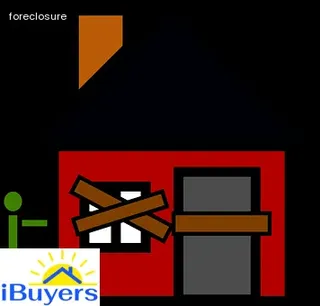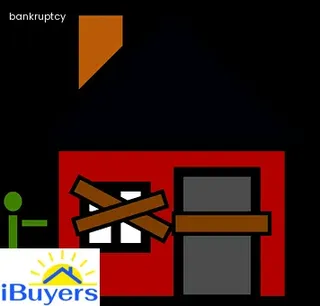Preforeclosure is an important part of the Rhode Island foreclosure process, and understanding it is key to navigating this difficult situation. Preforeclosure is the period of time between when a homeowner has missed one or more mortgage payments and when the lender begins the foreclosure process.
During this phase, lenders are required to make a good faith effort to contact the borrower and work out an agreement to cure the delinquency. Borrowers should be aware that they can enter into repayment plans with their lenders during preforeclosure, as well as discuss options such as loan modifications, forbearance agreements, or even short sales if they are unable to keep up with their mortgage payments.
It’s important for borrowers in Rhode Island to understand that preforeclosure does not necessarily mean foreclosure; there are often ways for them to avoid losing their homes. The best way to stay informed on your rights and options during preforeclosure is by consulting a qualified attorney or housing counselor who can provide guidance on how best to proceed in your particular case.

Navigating the Rhode Island foreclosure process can be intimidating, but understanding it is key to ensuring you are protected. It is important to know that the foreclosure process in Rhode Island is a judicial process, meaning it is handled by the court system.
This means that when a homeowner defaults on their mortgage payments, the lender must file a lawsuit against them and follow certain steps in order for the foreclosure to proceed. The first step of this process is known as pre-foreclosure or “pre-judgment”, during which time the homeowner has an opportunity to work out an agreement with their lender such as loan modification or a payment plan.
If no agreement can be reached, then the lender will move forward with filing a complaint with the court and delivering copies of all relevant documents to the homeowner. Once this happens, there will be a hearing where both parties can present evidence and arguments before a judge makes a decision about whether or not to order foreclosure.
The next step is for the court to issue an Order of Sale which authorizes sale of the property at public auction. Finally, if no bidders show up at auction or all bids are rejected by lenders, then they will receive title and possession of the property through what is known as “strict foreclosure”.
It is important to remember that while foreclosures are stressful and difficult experiences they do not have to be permanent; homeowners should take advantage of available resources from local agencies or legal professionals in order to get help understanding and navigating these processes.
While the legalities of foreclosure can vary from state to state, there are a few common steps that all homeowners in Rhode Island should be aware of. Generally, a lender will begin by issuing an official notice of default, which alerts borrowers that they are behind on payments and must take corrective action within a certain time frame.
If the borrower does not take action, the lender may then file a complaint in court along with supporting documents such as copies of mortgage contracts and notices of default. The court will then issue a summons and complaint to the homeowner, who must respond within twenty days.
If no response is received, the court may issue an order for foreclosure sale. This order provides details about where, when, and how the auction will take place.
The property is then sold to the highest bidder at either public or private auction. Afterward, the court issues a deed in favor of the buyer that officially conveys ownership rights to them.

Foreclosure is a difficult process to go through, but it is possible to avoid it in Rhode Island. The best way to do so is to stay informed about your mortgage payments and the laws that govern them in the state.
Start by understanding what foreclosure is and how it works in Rhode Island. Talk to your lender if you are having trouble making payments, as they may be able to provide assistance or alternative payment plans.
Additionally, research loan modification programs and other forms of financial aid which can help ease the burden of debt. Keeping up with communication with your lender is crucial; even if you can't make a full payment, sending partial payments or reaching out for assistance can help prevent foreclosure proceedings from starting.
To further protect yourself, consult a lawyer who specializes in real estate law; they will be able to guide you on any rights and obligations you may have under state law. With the right information and resources, avoiding foreclosure in Rhode Island is possible.
When going through a foreclosure in Rhode Island, it is important to understand the state's deficiency judgment laws. In Rhode Island, a lender may file a lawsuit against the borrower for any unpaid balance after the foreclosure process has been completed.
This can then result in a deficiency judgment being issued by the court. The amount of the deficiency judgment will be equal to the difference between what was owed on the property and what it was sold for at auction.
If this amount is not paid within 30 days of the court's ruling, legal steps can be taken to collect it from the former homeowner. These include garnishing wages or wages and bank accounts, placing liens on other properties owned by the individual or seizing assets in order to pay off the debt.
It is essential for borrowers facing foreclosure to understand these rules and potential consequences in Rhode Island so that they can make informed decisions about their financial future.

When faced with the Rhode Island foreclosure process, it is important to know when to seek professional assistance. It is wise to reach out for help if you have missed more than one mortgage payment or are facing an imminent foreclosure filing.
Professional assistance can offer advice on how to make up payments and explore options such as loan modification or forbearance agreements. Additionally, if your financial situation is severe and you cannot pay your mortgage, a housing counselor may be able to help negotiate with the lender to reduce payments or even forgive part of the debt.
No matter what stage of foreclosure you are in, it is crucial to understand all available options and take advantage of any legal assistance that can stop the foreclosure process from taking effect.
When it comes to avoiding foreclosure in Rhode Island, homeowners have several options available to them. For starters, the state offers a Loss Mitigation Program designed to provide borrowers with various assistance services such as loan modifications, forbearance agreements and repayment plans.
Additionally, federal law provides additional protection for those facing foreclosure with loss mitigation options that must be considered before a lender can proceed with the process. These include special forbearance, loan modifications and other alternatives that may help keep a borrower in their home.
Homeowners should also be aware of options like repayment plans or short sales which allow them to pay off the debt over time or sell the property for less than what is owed on the mortgage. Understanding these options and navigating through the foreclosure process can be difficult but it is important for homeowners to know that help is available and they should take advantage of all options at their disposal.

In Rhode Island, the foreclosure process is complex and can vary depending on the type of foreclosure. There are two primary types of foreclosures: judicial and non-judicial.
Judicial foreclosures are court-supervised, meaning that the property must be sold in a public auction and the proceeds distributed among creditors according to court order. Non-judicial foreclosures do not require court involvement, but instead take place through an agreement between the lender and borrower.
This can include a deed in lieu of foreclosure or a loan modification. In Rhode Island, lenders may also use power of sale clauses in mortgages, which allow them to sell the property without going through a court process.
Understanding the different types of foreclosures available in Rhode Island is essential for anyone considering this option for resolving their financial difficulties.
Nonjudicial foreclosure is a process by which a lender can repossess a property when the borrower defaults on their loan. It is an option for lenders in certain states, including Rhode Island, when the borrower fails to make payments or otherwise defaults on their loan obligation.
In this type of foreclosure, the lender does not have to go through the court system to take possession of the property. Instead, they are able to use an internal process with the help of a third-party trustee that will handle all necessary aspects of the foreclosure.
This includes notification of default, auctioning off the property and transferring title back to the lender. During this process, borrowers typically have multiple opportunities to bring payments current in order to avoid foreclosure but ultimately if no resolution is reached and payments are not brought up to date then nonjudicial foreclosure can occur.
Typically this process takes between three and six months however it varies depending on state laws as well as any other specific factors related to individual cases.

Reinstatement of the loan is an option for homeowners facing foreclosure in Rhode Island that allows them to get caught up on their missed mortgage payments and reinstate their loan. It is important for homeowners to be aware of this option and understand what it entails, including any associated costs.
To be eligible for reinstatement, the homeowner must have the funds available to cover all past due payments, late fees and other expenses related to the foreclosure process. The lender may also require additional documentation such as proof of income or property valuation before they will consider reinstatement.
Once the entire amount has been paid, the lender will typically release its lien on the property and allow it to remain in the homeowner's name. Reinstatement can be a viable solution for those who are able to pay back all missed payments and need assistance getting current on their loan, however it should be noted that this option may not always be available depending on the lender's policies.
In Rhode Island, understanding deficiency judgments is essential for homeowners who are going through the foreclosure process. A deficiency judgment is a court order requiring a homeowner to pay any remaining balance on their mortgage after their property has been sold through foreclosure.
If the proceeds from the foreclosure sale do not cover the total outstanding balance of their loan, then the court can issue a deficiency judgment against them. These judgments are typically issued in cases where the property was sold at auction for less than what was owed on it.
Homeowners must be aware that these judgments can remain active for up to 10 years and can even be used by creditors to place liens on other property or pursue wage garnishments. In some cases, lenders may also offer borrowers an opportunity to settle their debt with a lump-sum payment or negotiate a repayment plan before they proceed with seeking a deficiency judgment.
While this may provide relief in terms of avoiding additional fees and interest charges, it is important for homeowners to ensure that any settlement agreement is fair and properly documented due to its potential long-term impact on their financial well-being.

When a homeowner facing foreclosure in Rhode Island receives notification from the court that their property is being sold, it is important to understand that there is no redemption right after a sale. This means that once the property has been sold, the former homeowner no longer has any legal rights to reclaim or regain possession of the home.
In such cases, homeowners must make sure they are informed of all available resources and options before deciding how best to proceed with their situation. It is also important for homeowners to be aware of state and federal laws surrounding foreclosure protection and rights so they can keep their options open.
Being knowledgeable about the process will help them make an informed decision and determine which route may work best for them.
Rhode Island has some unique laws and regulations regarding foreclosures that are important to understand when considering foreclosure in the state. Foreclosure in Rhode Island is a judicial process, meaning that it must go through the court system, and is also a non-recourse state.
This means that lenders cannot pursue any additional debt or personal assets of the borrower beyond what was used as collateral for the loan. Rhode Island also allows borrowers to redeem their property within three months after foreclosure by paying all accrued fees and costs, as well as any arrearages on the loan.
Additionally, Rhode Island does not have statutory right of redemption for borrowers and does not allow deficiency judgements, meaning lenders cannot seek monetary compensation from borrowers for losses associated with the sale of a foreclosed home. It is important to understand these laws when considering foreclosure in Rhode Island as they can greatly affect how the process unfolds.

When a homeowner is facing a potential foreclosure in Rhode Island, it is important to understand the legal process and when to seek out legal advice. It can be difficult to navigate the complex laws surrounding foreclosure, and having a lawyer on your side can make all the difference.
Generally speaking, any time you are served with foreclosure paperwork or notice of default, this is the time to consider seeking professional help from an experienced attorney. An attorney will be able to review your case and provide legal counsel on how best to approach it.
If you need assistance negotiating with your lender or have questions about possible outcomes, it is advisable to hire an attorney who understands foreclosure laws in Rhode Island. In addition, if your home has already been put up for sale in a public auction, you should speak with an attorney right away as they may be able to help delay or possibly even stop the auction altogether.
The average foreclosure process in Rhode Island can take anywhere from six to nine months, depending on the individual situation. This timeline includes pre-foreclosure, the actual foreclosure process, and post-foreclosure.
During pre-foreclosure, homeowners receive a notice of default and are typically required to pay their delinquent mortgage payments and any fees before the foreclosure sale date. The actual foreclosure process starts with a public auction where the lender takes ownership of the property if no one else bids on it.
After that, the homeowner is usually evicted from the property within 30 days. Following eviction, lenders must wait an additional 90 days before they are able to sell the property in order to provide homeowners more time for a possible redemption of their debt.
During this period, lenders may also accept short sales or negotiate with buyers for options such as deed in lieu of foreclosure agreements. It is important for potential homeowners to understand all of these nuances in order to make informed decisions about buying foreclosed properties in Rhode Island.

When a homeowner is facing foreclosure, there are alternatives to the traditional judicial or nonjudicial process that can help them avoid being foreclosed upon. One option is to negotiate with the lender for a loan modification.
This involves changing the terms of the loan in order to make it more affordable and reduce monthly payments. Another option is to enter into a repayment plan with the lender, which requires making regular payments until all past due amounts have been paid off.
Additionally, a short sale may be an option if the homeowner owes more than the property is worth; in this case, they can sell their home and pay off their debt with proceeds from the sale. Lastly, filing for bankruptcy protection can also provide some relief from foreclosure proceedings by stopping them altogether while providing time for homeowners to reorganize their finances and get back on track with their mortgage payments.
The Rhode Island court system plays a critical role in the foreclosure process by providing legal oversight and guidance. The court oversees the legal process of foreclosure and provides guidelines for lenders to follow, while ensuring that borrowers are protected from any violations of their rights.
Once a lender has filed a complaint with the court, they must adhere to all legal procedures as outlined by the court regarding foreclosure notices, timelines, and other requirements. The court also reviews any defenses that may be presented by the borrower and determines whether or not they are valid.
Additionally, if an agreement is reached between the lender and borrower, it must be approved by the court before it can be finalized. Ultimately, it is up to the court system to ensure that both sides are treated fairly throughout this process.

When faced with a Rhode Island foreclosure case, it is important to understand your rights as a homeowner in order to protect yourself. In most cases, the lender will file a complaint in court asserting that you have defaulted on the terms of your loan and are in breach of contract.
This may be followed by a summons and complaint outlining the amount owed, the property involved, and any other legal issues. The court will issue an order of foreclosure if the lender is successful in its claim.
As the homeowner, you have certain rights during this process including being able to present evidence, having access to legal counsel, receiving notice from the court before a foreclosure sale takes place, and filing an objection if necessary. You should also know that lenders must follow all applicable state laws when pursuing foreclosure proceedings against a homeowner.
Understanding these rights can help ensure that you protect your interests throughout the RI foreclosure process.
If you are facing foreclosure in Rhode Island, it is important to understand your options and the steps involved in the process. One of the most important things you can do is familiarize yourself with tips for dealing with creditors during a foreclosure case.
When it comes to communication with creditors, honesty and transparency are key. Keeping records of all communication is also vital as it will help provide clarity if needed.
It is helpful to explain your financial situation and why you may be behind on payments. If you have a plan for repayment, having that information available can prove useful in negotiations.
Additionally, understanding your rights under state and federal laws can help protect you from predatory lenders or other unethical practices. Remember that creditors want their money back; therefore, being open to negotiation is essential.
Finally, seek assistance from a qualified professional who can help guide you through the process and make sure your rights are protected throughout.

Navigating the Rhode Island foreclosure process can be a difficult and daunting experience. Fortunately, resources are available to assist those who find themselves in this situation.
Understanding your options is key to making the right decisions during this trying time. Homeowners should take advantage of the financial counseling services provided by the Rhode Island Housing agency, as well as their Foreclosure Prevention and Education program.
Additional resources include licensed attorneys who can help homeowners understand their rights and options under the law. In addition, many lenders have programs designed to help borrowers avoid foreclosure, such as loan modifications and assistance with relocation costs.
For those who are unable to avoid foreclosure, there are also options for short sales or deed-in-lieu of foreclosure agreements which may provide more favorable terms than a traditional foreclosure would. Lastly, organizations like NeighborWorks America offer free housing counseling services that provide advice and assistance throughout the process of resolving a mortgage delinquency or default.
Knowing what resources are available can make a world of difference for those affected by a foreclosure in Rhode Island.
The foreclosure process in Rhode Island begins with a Notice of Default and Right to Cure sent by the lender. This notice informs the homeowner that they are in default on their mortgage loan and must take action to cure the default or face foreclosure proceedings.
The homeowner then has 30 days to either pay off the debt or enter into a repayment plan with their lender. If the homeowner does not take any action within this time period, the lender may file a complaint in Superior Court, which initiates a public auction of the property.
At this point, all interested buyers can bid on the property at auction. The highest bidder will be awarded ownership of the home and must satisfy any outstanding lien or loan amounts owed to complete their purchase.
Homeowners should understand that once foreclosure proceedings begin, they will lose all rights to their home and may face eviction if they do not comply with the court's orders. It is important for homeowners facing financial difficulty to seek assistance from an attorney or financial advisor as soon as possible in order to understand their options and protect themselves during the foreclosure process in Rhode Island.

When it comes to foreclosure in Rhode Island, the timeline is dependent on how many months behind a homeowner is on their mortgage payments. Generally, once a homeowner falls three months or more behind on their mortgage payment, they will receive notification from the lender that they are going into foreclosure.
This notification will include details about the foreclosure process and the options available to the homeowner. Most lenders in Rhode Island allow homeowners up to five months before initiating the foreclosure process, however this timeline can vary depending on the lender's specific policies.
During this time period, homeowners may be able to work with their lender to try and avoid foreclosure by catching up on payments or entering into a repayment plan with their lender. It is important for homeowners to understand their rights and all of the options available when facing foreclosure so that they can make an informed decision about what is best for them and their family.
Rhode Island has the longest foreclosure process in the United States, with a timeline that can take more than two years. For homeowners facing foreclosure in Rhode Island, it is important to understand the procedures and regulations surrounding the process.
The first step for any homeowner facing foreclosure in Rhode Island is to contact their lender or servicer as soon as possible. The lender may be able to work out a repayment plan or loan modification that could help avoid foreclosure.
If this is not an option, then the lender will initiate the foreclosure process by filing a complaint with the court system. Once filed, the homeowner will receive notice of this complaint and have 20 days to respond.
From there, a court hearing will be scheduled where a judge will determine whether or not to issue an order of sale. If issued, then an auction will be held where potential buyers can bid on the property.
Lastly, if no potential buyers bid on the property, then it will revert back to the lender and they may choose to sell it at a later time. Understanding all aspects of Rhode Island's lengthy foreclosure process can help homeowners better prepare for what lies ahead.
Rhode Island is one of the many states in the United States that follow a non-judicial foreclosure process. This process allows lenders to reclaim their collateral without having to go through the court system, which can be both time consuming and expensive.
In Rhode Island, non judicial foreclosures typically occur after a borrower has missed several payments and all other attempts to collect have failed. The lender will then send the borrower a Notice of Default, which informs them of their failure to meet their debt obligations and notifies them that they are at risk of foreclosure.
From here, the lender may begin advertising for sale of the property and taking bids from potential buyers. If successful, the lender will obtain title to the property and can decide whether or not to evict any occupants living on the premises.
It is important for those considering buying a home in Rhode Island to understand this process so they know what rights they have if they ever find themselves facing foreclosure down the line.
A: The foreclosure process in Rhode Island typically takes between 6-9 months from the time the complaint is filed until the foreclosure sale.
A: The foreclosure process typically takes between four and eight months in Rhode Island.

A: Generally, foreclosure proceedings in Rhode Island can take as little as three months or up to one year depending on the circumstances.
A: The precise timeline for foreclosures in Rhode Island can vary depending on the specifics of each case. Generally, however, the entire process typically takes between 3-6 months.
A: The foreclosure process in Rhode Island can be significantly delayed if the Mortgagor has filed for Chapter 13 Bankruptcy. During this period, the Mortgagee is not allowed to proceed with the foreclosure sale until the court approves it or until the Mortgagor's chapter 13 bankruptcy plan is completed, which can take anywhere from 3-5 years.

A: The timeline for a foreclosure in Rhode Island can vary significantly depending on various factors, including the Mortgage Servicing company involved. Generally speaking, however, foreclosures in Rhode Island can take anywhere from six months to two years.
A: The COVID-19 pandemic has caused delays across the whole country, including in Rhode Island. Contractual rights can also influence the timeline of the foreclosure, as both parties must adhere to their contracts and any applicable state laws. Generally, how long a foreclosure takes in Rhode Island can depend on a variety of factors such as local docket backlogs, court schedules and procedures, or even the particular ZIP Code in which the property is located.
A: The use of witnesses and technology can speed up the foreclosure process in Rhode Island by ensuring accuracy and protecting the privacy rights of both the Mortgagee and Mortgagor. Most importantly, it ensures that all parties are abiding by the state's privacy policy.

A: The foreclosure process timeline can vary depending on the location and circumstances, but generally it takes around 6 months from start to finish for a FIRST-LIEN Mortgagee to foreclose on Mortgagor through THE INTERNET in Rhode Island.
A: Generally, the duration of a foreclosure process in Rhode Island varies depending on the specific circumstances; however, if an injunction is successfully obtained by a Mortgagee from a Federal Court in Rhode Island, it can result in speeding up the foreclosure process and reduce its overall duration.
A: The length of time it takes to complete a foreclosure process in Rhode Island may vary depending on whether the Mortgagor gives their consent or not. If consent is given, it can be completed as quickly as two months, however if they choose to dispute the foreclosure, then it can take up to two years or more. Understanding The Rhode Island Foreclosure Process and What You Need To Know are important steps to take before beginning the foreclosure process.

A: The timeline of foreclosure proceedings in Rhode Island can vary depending upon the circumstances. Generally speaking, the foreclosure process can take anywhere from 30 to 90 days or more when a Mortgagor has filed for Chapter 7 Bankruptcy, paid the mortgage in cash, and is under an automatic stay with an auto-dialer.
A: The foreclosure process in Rhode Island can typically take 3-4 months, depending on the complexity of the case and other factors such as whether or not an attorney-client relationship is established and how quickly filings are processed.